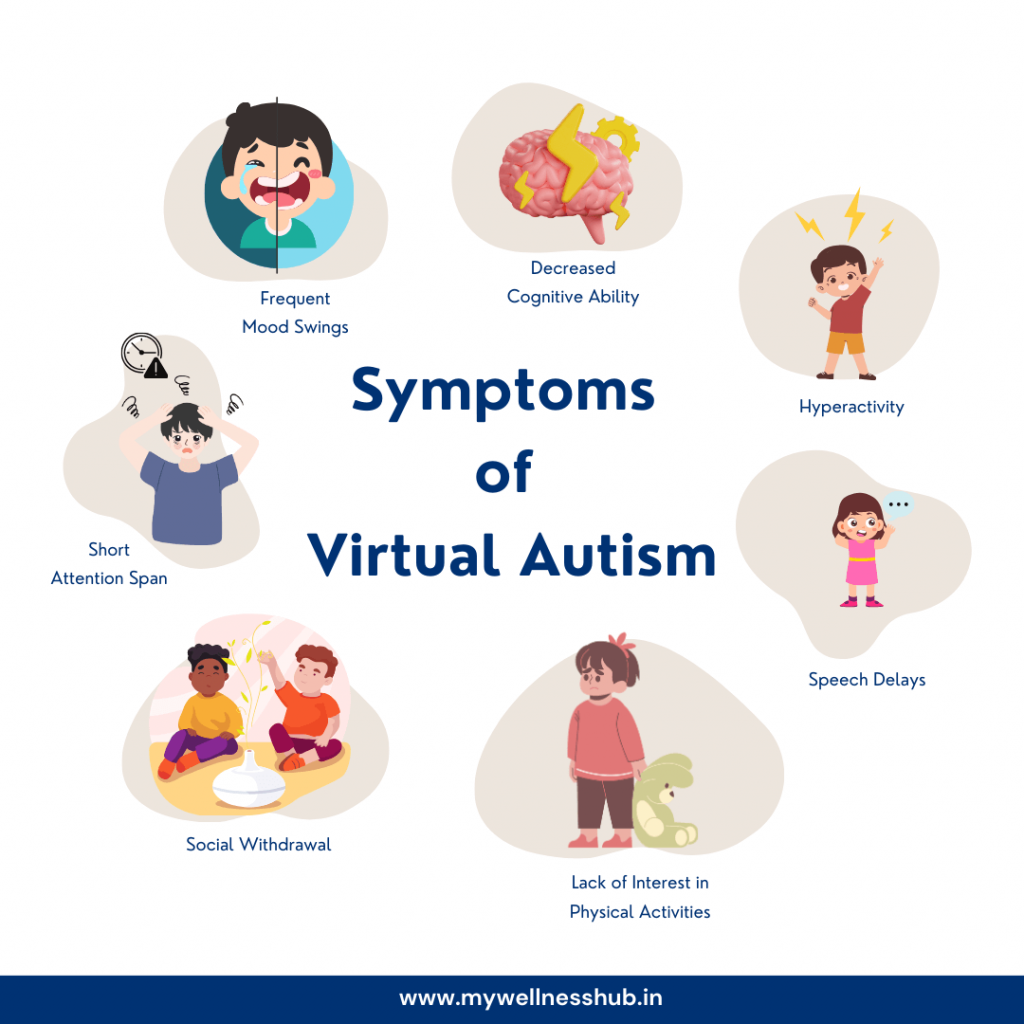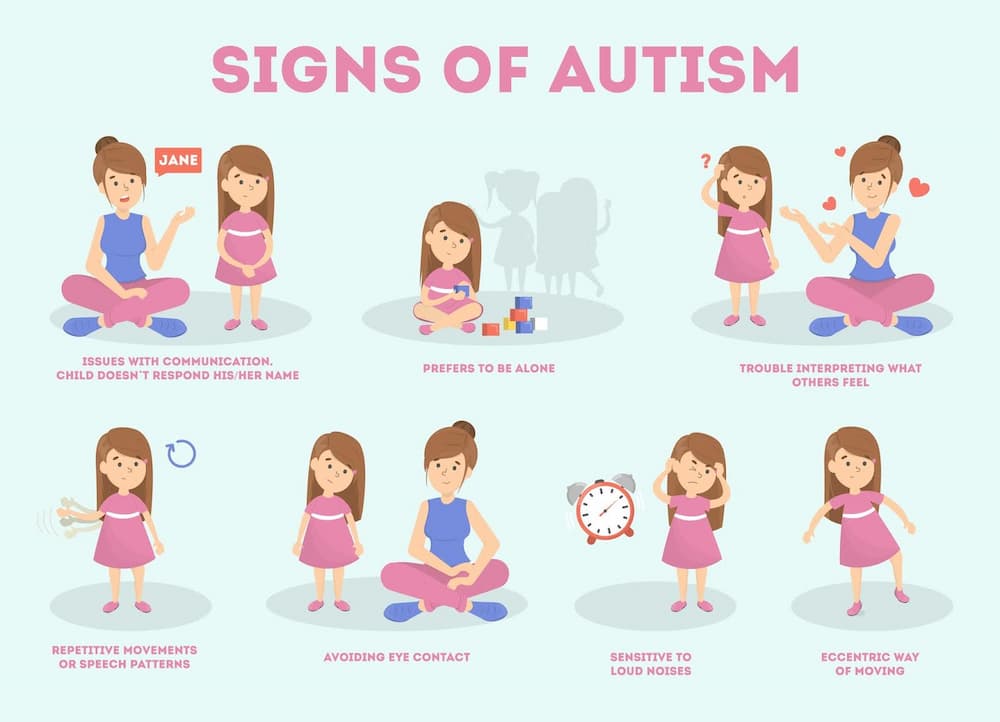Seven Powerful ways an expert in Autism Spectrum Therapies can help with communication challenges
Seven Powerful ways an expert in Autism Spectrum Therapies can help with communication challenges
Blog Article
Understanding the Impact of Behavioral Autism on Daily Life and Social Communications
You may not realize just how deeply behavior autism influences every day life and social interactions. Individuals on the range usually navigate a world full of communication obstacles and sensory overload. These obstacles can lead to disappointment and seclusion, influencing their connections and overall well-being. Understanding these subtleties is vital for cultivating supportive environments. What techniques can we apply to develop more significant links and comprehensive spaces? The solutions might amaze you.
Specifying Behavior Autism and Its Qualities
Behavior autism, usually described as autism range disorder (ASD), incorporates a variety of conditions defined by difficulties in social communication, interaction, and repeated behaviors. You might see that individuals with ASD often battle to interpret social hints, which can result in misunderstandings in conversations. They may locate it difficult to establish eye call or participate in small talk, making social circumstances really feel overwhelming.
Communication difficulties can show up in different ways, from delayed speech growth to a preference for making use of fewer words. By recognizing these attributes, you can foster an environment that promotes approval and encourages effective interaction, aiding individuals with autism prosper in their daily communications.
The Spectrum of Autism: Comprehending Irregularity in Actions
Autism spectrum condition (ASD) isn't a one-size-fits-all diagnosis; it varies extensively amongst individuals. You might experience individuals that are highly verbal and involve easily in conversations, while others could favor singular activities or interact non-verbally.
Additionally, the method individuals with ASD reply to sensory input can differ significantly; some could be overwhelmed by bright lights or loud noises, whereas others prosper in stimulating settings. The range likewise includes differences in social interactions; some individuals might struggle to interpret social cues, while others navigate social setups with relative simplicity. Recognizing this variability is important, as it assists you appreciate everyone's distinct experience and dressmaker assistance to their particular requirements, promoting an extra comprehensive atmosphere for everyone.
Communication Challenges Dealt With by Individuals With Autism
When you interact with people on the autism range, you may observe their special interaction obstacles. They usually encounter problems with both nonverbal and spoken hints, which can influence their social interactions. Recognizing these barriers is important for cultivating better connections and support.

Verbal Interaction Troubles
Many individuals on the autism spectrum experience verbal communication problems that can significantly impact their day-to-day communications. Your tone, quantity, or speed could not align with social expectations, causing others to misinterpret your objectives. Identifying these challenges can assist you and your support network create techniques to enhance communication and promote better links with others in your everyday life.
Nonverbal Interaction Barriers
Spoken communication isn't the only difficulty people on the autism spectrum face; nonverbal interaction barriers can be simply as significant. These difficulties can lead to misunderstandings or misconceptions of social cues, making interactions feel confusing or frustrating. By resolving nonverbal communication, you can discover methods to boost your social experiences and enhance your overall high quality of life.
Social Communication Impacts
Social interactions can commonly really feel overwhelming due to the unique communication challenges encountered by individuals with autism. You could battle with analyzing social signs, making it difficult to comprehend sarcasm or body movement. This can lead to misconceptions or awkward moments in discussions. Furthermore, launching and maintaining discussions may really feel challenging, triggering stress and anxiety in social circumstances. You might like structured environments, making spontaneous interactions uneasy. It's additionally common to experience problem in participating in tiny talk, which can prevent forming brand-new friendships. Recognizing these challenges can assist you find strategies to improve interaction, such as exercising social abilities in safe setups or utilizing visual aids - Aba Therapist Near Me. Understanding your demands enables you to browse social communications with better self-confidence and simplicity.
Social Interaction and Connection Building in Autism
While structure partnerships can be challenging for individuals with autism, comprehending their special point of views and interaction designs can promote purposeful links. You could observe that lots of people on the spectrum like direct interaction and may battle with social cues or little talk. By being simple in your interactions, you can aid develop a setting where they feel comfortable.
Make the effort to observe and listen just how they reveal themselves. This insight can guide you in guiding discussions much more effectively. Taking part in shared interests can likewise function as a bridge to deeper links. Whether it's a leisure activity, a favored program, or a shared passion, these usual strings can open doors to relationship.
Day-to-day Live Routine: Browsing Techniques and obstacles
Maneuvering day-to-day life routines can be specifically challenging for individuals with autism, particularly when unanticipated adjustments happen. To navigate these obstacles, take into consideration carrying out aesthetic routines or checklists.
Establishing a regimen that consists of sensory breaks can also be useful. You can prepare brief breaks throughout your day to reenergize. It's necessary to connect with those around you, allowing them know your requirements and choices. This helps create an understanding atmosphere.
Finally, practice mindfulness methods to manage stress and anxiety and anxiety. Basic breathing workouts or grounding methods can make a substantial distinction. By incorporating these methods, you can improve your daily regimen and minimize disruptions, making life really feel much more workable.
Staminas and Abilities of Individuals on the Autism Spectrum
Understanding daily life regimens is simply one facet of the autism experience. Several people on the autism range possess exceptional strengths and capacities that set them apart. You might discover that your focus to detail is phenomenal, permitting you to excel in jobs that require accuracy and focus. Your capacity to believe outside the box can cause ingenious services in various circumstances.
In addition, your memory skills often shine, particularly in locations of passion. Autism Therapist. This flair for preserving details can make you an important resource in areas like scientific research, modern technology, or art. You may likewise show strong aesthetic thinking, allowing you check here to imagine complicated concepts and solve problems creatively
In addition, your distinct viewpoint on the world can foster empathy and understanding in others, improving social communications. Embracing these strengths not only improves your confidence yet also helps others value the varied talents you give the table.
Creating Inclusive Settings for People With Autism
Producing comprehensive settings for people with autism starts with developing sensory-friendly rooms that satisfy their special requirements. You can also cultivate opportunities for social interaction, aiding to construct friendships and connections. By making these changes, you'll contribute to a much more inviting atmosphere for everybody.
Creating Sensory-Friendly Spaces
While developing sensory-friendly rooms, it's vital to assess the distinct requirements of individuals with autism. Start by choosing soothing colors and soft lighting to create a relaxing setting. When overwhelmed, include quiet areas where individuals can charge and retreat. You'll intend to minimize loud sounds and distractions, utilizing soundproof materials or white noise makers to aid keep peace. Consider responsive elements like soft materials or fidget-friendly things that can supply convenience. Establish that areas are adaptable, permitting easy rearrangement to accommodate various tasks. Lastly, consist of visual timetables or clear signs to help people browse the room with confidence. By thoughtfully incorporating these aspects, you can produce a welcoming atmosphere that supports sensory requirements and promotes overall wellness.
Promoting Social Communication Opportunities
Designing sensory-friendly rooms not only addresses private convenience but likewise establishes the phase for meaningful social interactions among people with autism. Urge peer mentoring, pairing individuals with autism with helpful peers that can guide them through social circumstances. By implementing these methods, you can boost social opportunities, assisting people with autism construct friendships and strengthen their social skills in a risk-free, inviting setting.

Regularly Asked Inquiries
How Can Friends Support Somebody With Behavioral Autism?
You can support a good friend with behavior autism by holding your horses, paying attention proactively, and valuing their boundaries. Participate in activities they enjoy, interact freely, and create a comfortable environment where they really feel valued and recognized.
What Resources Are Available for Parents of Children With Autism?
You can explore different resources for moms and dads of kids with autism, including assistance teams, educational internet sites, and regional social work. Linking with other moms and dads can likewise provide beneficial insights and shared experiences to aid browse difficulties.
Can Behavioral Autism Change Gradually?

Yes, behavior autism can alter over time. You could observe changes in communication, social abilities, and actions as your kid expands. Early intervention and support frequently play essential duties in these developmental modifications.
Exactly How Do Sensory Level Of Sensitivities Impact Daily Life?
Sensory level of sensitivities can make daily experiences overwhelming. You could have a hard time with bright lights or loud sounds, leading to anxiety or avoidance. Discovering settings that fit your demands can greatly enhance your convenience and general life.
What Prevail Misconceptions About Behavioral Autism?
You may believe behavior autism just influences interaction abilities, yet it's even more facility. Many assume individuals lack empathy or intelligence, which isn't true. Comprehending these misconceptions helps foster acceptance and support for those on the spectrum.
Behavioral autism, usually referred to as autism spectrum condition (ASD), includes an array of problems characterized by difficulties in social interaction, interaction, and repetitive habits.Social communications can usually feel overwhelming due to the special interaction difficulties dealt with by individuals with autism.Creating sensory-friendly spaces not just addresses specific convenience yet likewise sets the stage for meaningful social communications amongst people with autism. Encourage peer mentoring, coupling people with autism with encouraging peers that can assist them with social situations. By carrying out these approaches, you can boost social possibilities, aiding individuals with autism build friendships and reinforce their social skills in a safe, inviting setting.
Report this page